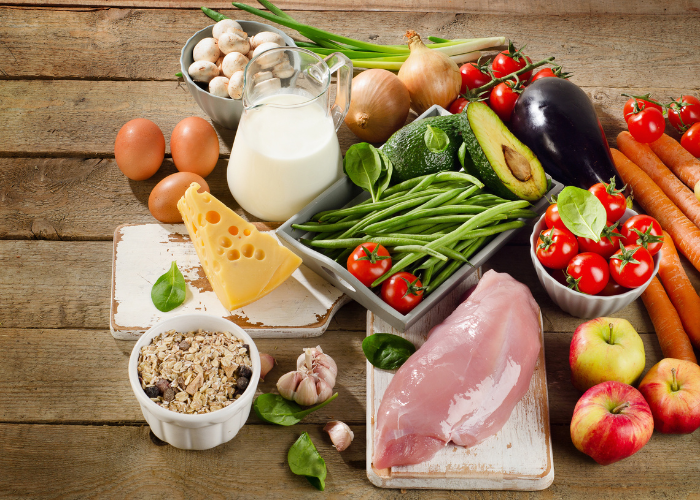Eating Well to Live BetterINTERVIEW BY PIETRO PAGANINI
- 14 January 2025
- Posted by: Competere
- Categories: Balanced Lifestyle, Empowering Consumers, Empowering Consumers-HLP, highlights, News

FashionLife Magazine published an interview with Pietro Paganini, author of the book “I-Food: How to Escape Food Ideology?”, where he delves into the importance of food education that harmonizes tradition, freedom of choice, and innovation. Key topics discussed include the value of the Mediterranean diet, the risks associated with food standardization, and the opportunities offered by new technologies.
Read the full interview in Italian on FashionLife Magazine or in English below.
Health begins in the kitchen: how important is it to promote education in this regard?
Food education should be a cornerstone of socialization, beginning within families and schools, and now extending to the online world. However, it often is not. We tend to believe we know what it means to eat well, but we often limit ourselves to appreciating the taste or authenticity of certain products without truly understanding what we are consuming.
In the age of knowledge, social media, and artificial intelligence, paradoxically, we know a great deal about many things, but very little about what we put on our plates: the nutrients, their impact on our well-being, and ideal portion sizes.
We approach cooking with enthusiasm—taking courses, watching videos, and following recipes on social media—but we rarely delve into the true meaning of nourishment. Educating ourselves about food means gaining freedom: the ability to consciously choose a balanced diet with the right caloric intake, the best nutrients, and without giving up the pleasure of eating.
It’s not just about balance; it’s also about allowing ourselves the occasional indulgence within an overall framework of equilibrium. Eating well is a form of mindfulness, a gesture of love toward ourselves and others.
Why is the Mediterranean diet fundamental to our society from a social and cultural perspective?
In your latest book, “I-Food: How to Escape Food Ideology?” you talk about the “iPhonization” of nutrition. Could you explain what you mean by this term and what the potential consequences of this trend are?
In my book, I advocate for the Mediterranean diet as a dynamic method that embraces individual diversity and evolves over time. I also introduce the concept of precision nutrition as a tool for designing a personalized lifestyle focused on well-being and longevity. I strongly oppose “coercive” or “totalitarian” tools that some governments, international institutions, or commercial lobbies are attempting to impose to tackle complex issues such as poor nutrition, obesity, and non-communicable diseases.
Solutions like front-of-package labels—for example, Nutriscore—or targeted taxes on fats and sugars, and even the so-called planetary diet, propose standardized approaches that undermine consumer freedom of choice. These tools favor large-scale food production at the expense of local production, culinary traditions, and cultural diversity.
When I talk about the “iPhonization” of nutrition, I am referring precisely to this trend of standardizing everything, turning food into a uniform product devoid of roots and personality, the same for everyone. This process risks flattening not only flavors but also our ability to make choices and appreciate the cultural heritage that food represents.
We must resist this standardization by promoting a model that is instead free, inclusive, and capable of respecting local identities and individual needs.
This magazine focuses on lifestyle. What do you think about young people relying on social media to choose what to eat, often favoring places with more photogenic dishes over other considerations?
Social media can be useful for discovering new ideas and trends, but their effectiveness depends on the critical thinking with which they are used. Relying solely on the “photogenic” aspect of a dish risks reducing food to an aesthetic element, neglecting its primary function: to nourish the body and mind in a balanced way.
The real challenge, however, lies ahead with artificial intelligence. Soon, chatbots and AI agents will be able to recommend what to eat based on our physical and mental state, offering an unprecedented level of personalization. This represents an extraordinary opportunity to improve dietary choices but also a potential risk if AI is not managed transparently and ethically.
Technology should be an ally for awareness and well-being, not a substitute for our critical judgment. It is up to us to maintain control and use these tools to enhance, not limit, our freedom of choice.
Is it accurate to say that the Mediterranean diet offers a valuable return to the roots with a sustainable approach?
If by “return to the roots” we mean reclaiming Aristotelian balance and Socratic critical thinking, then yes, the Mediterranean diet represents a valuable return. It is not a rigid or static dietary regime but rather a method—a lifestyle that evolves with the times and adapts to both individual and collective needs.
The strength of the Mediterranean diet lies precisely in its flexibility: it is a model that promotes well-being and awareness, addressing contemporary needs without ever losing sight of its cultural roots. In this sense, it is a powerful tool for sustainable growth, not only environmentally but also economically and socially.
The Mediterranean diet is not just about food; it represents a balance between tradition and innovation, between pleasure and responsibility. It is a method that invites us to live better, respecting ourselves and the world around us.
